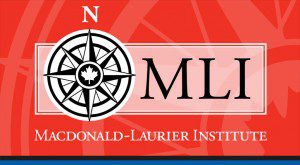 Terrorism poses a major threat to Canadians’ safety. Luc Portelance and Ray Boisvert, writing in the National Post, say the federal government will need to come up with a plan to keep us safe from a growing threat.
Terrorism poses a major threat to Canadians’ safety. Luc Portelance and Ray Boisvert, writing in the National Post, say the federal government will need to come up with a plan to keep us safe from a growing threat.
Portelance and Boisvert are the authors of a recent MLI commentary on counterterrorism.
By Luc Portelance and Ray Boisvert, Feb. 16, 2016
As the Trudeau government moves to address pressing issues and commitments, it is clear that national security must be a top priority. Since the October 2014 attacks in Canada, and the previous government’s attempts to fix national security shortcomings via Bill C-51, numerous terrorist acts have occurred globally, including Paris and San Bernardino, as well as in Burkina Faso and Jakarta, where seven Canadians perished in attacks against Western interests.
Internationally, the government is repatriating our CF-18s in favour of new, and arguably more holistic security building commitments. Domestically, it is looking to improve review and oversight, and has committed to addressing the “problematic elements” of Bill C-51. It does so at a time where the magnitude and complexity of the threat — and the corresponding strain on our national security organizations — has seldom been so high.
As it seeks to modernize the accountability regime, we believe the government is presented with a timely opportunity to consider a thorough assessment of our national security structure – from the perspective of both review and capability. With this balanced approach in mind, the government must address the following issues:
Accountability with Capability
The time for Parliamentary review of Canada’s intelligence community is here. However, as we move toward new mechanisms, we must ensure a proper balance between the need for effective and responsible “review,” along with accountability, and the need to ensure that Canada’s security apparatus is adequately tooled to address emerging threats.
Lawful Access of Communications
In a globalized threat environment, security agencies are often stymied in their investigations due to evolving Internet and encryption technologies. The problem of threat actors “going dark” is a serious and legitimate concern that must be addressed with the same vigour that is dedicated to protecting the privacy of our citizens. Although discomforting to some, we must engage in a balanced examination of the need for some form of lawful access that ensures precisely targeted interception of communications within a strict legal framework.
Information Sharing and Collaboration
Terrorism incidents overseas underscore the risks faced when information is not shared in a timely and effective manner among intelligence and enforcement agencies. In reviewing the information sharing enhancements in Bill C-51, it is therefore suggested that certain new investigative authorities be maintained, while ensuring that reasonable privacy expectations of Canadians are observed. Most importantly, the government needs to address the ongoing challenges associated with using intelligence for evidentiary purposes.
Border Integrity
Despite significant investments in border management, Canada stands alone among its allies in not having the ability to monitor outbound movements. With the pressing need to monitor movements of foreign fighters and dangerous goods, the government must close this critical security gap.
Counter-radicalization
Radicalization prevention begins at home, in our communities and across various levels of government. Furthermore, the development of counter-narratives to violent extremism must not be seen as the exclusive domain of security agencies. Counter-radicalization is a long-term battle of ideas that can only be won through collaborative action across society, and more specifically by applying proven commercial marketing strategies.
Canada’s International Role
Whether gathering intelligence, preventing the arrival of inadmissible people and goods, thwarting potential plots or tracking Canadians who have left Canada to join violent jihadist movements, our national security organizations must have the capabilities to work effectively overseas. The question of whether Canada requires a foreign intelligence service to reduce our reliance on third-party intelligence is timely.
Cyber Resilience
Cyber threats undermine our national competitiveness and impact on the privacy of individual Canadians. Hostile nations stealing our intellectual property or targeting our critical infrastructure, or organized criminal groups pilfering personal information, inflict serious losses daily. Canada must therefore focus on building a far more cyber-resilient society, both at the private and public levels. Finally, it must do so at a scale and pace commensurate with the efforts of our allies.
Public/Private Partnerships
In light of the complexity and interconnectedness of security threats to Canada, greater investments are required in sophisticated data analytics, particularly predictive analytics. Public/private partnerships can ensure that security agencies avail themselves of the best, leading edge Western technologies to enhance our security and privacy, while delivering economic benefits to Canada’s resourceful technology sectors.
This new government has committed to real change. This must include responding effectively to the safety and security challenges affecting Canadians, while protecting fundamental and necessary rights and freedoms. Meaningful change, therefore, should not simply involve tweaking Bill C-51 or introducing parliamentary review. At this critical juncture, and in the face of complex international security challenges, it must consider the modernization of all critical institutions — but particularly those engaged in national security.
With this context in mind, we are compelled to ask: is it time for a national security reset in Canada?
Luc Portelance is the president/CEO of CrossPoint Integrated Strategies and the former president of the Canada Border Services Agency. He is also the former Deputy Director, Operations of the Canadian Security Intelligence Service. Ray Boisvert is the president/CEO of I-Sec Integrated Strategies and the former Assistant Director, Intelligence of CSIS.




